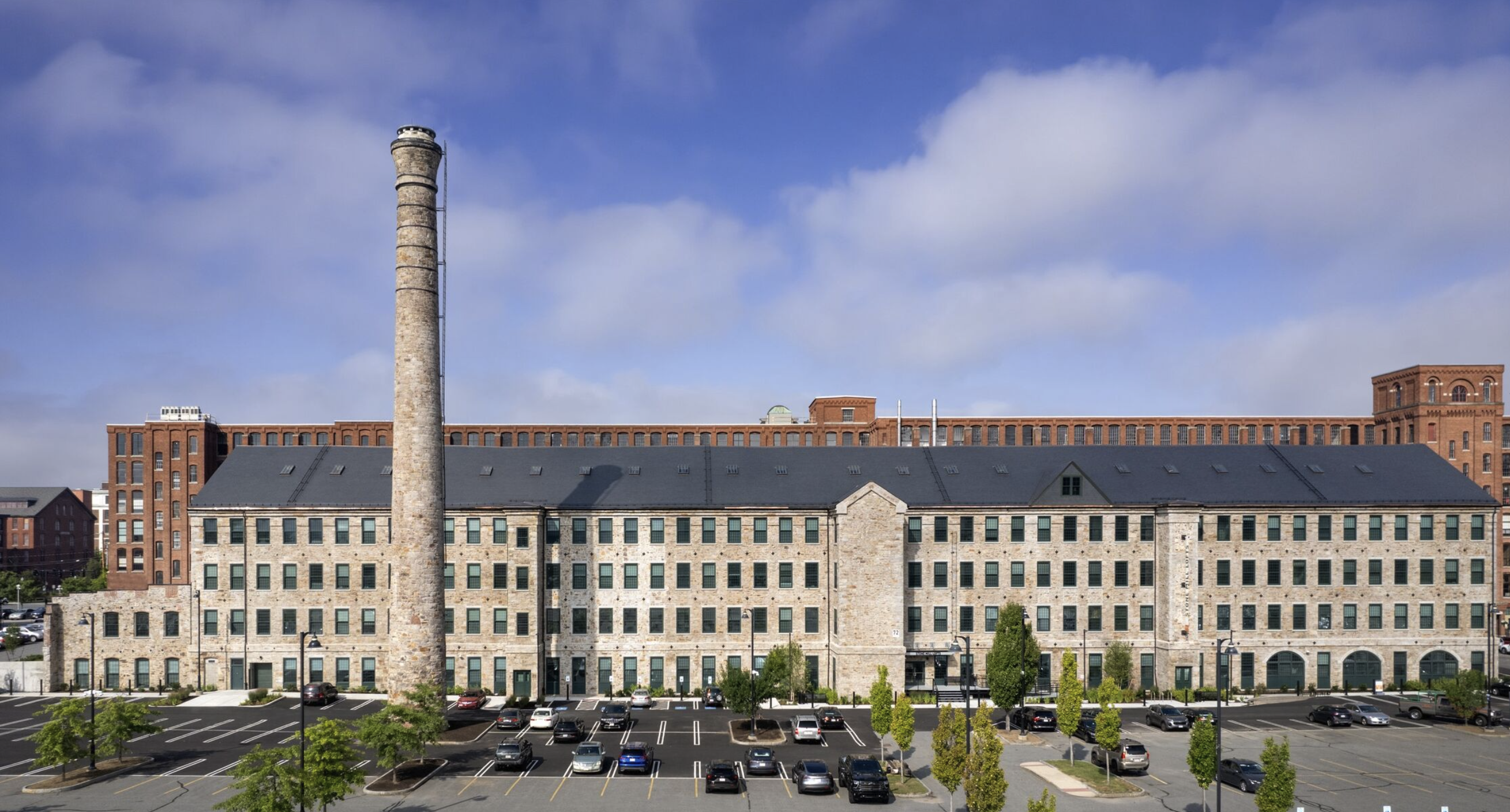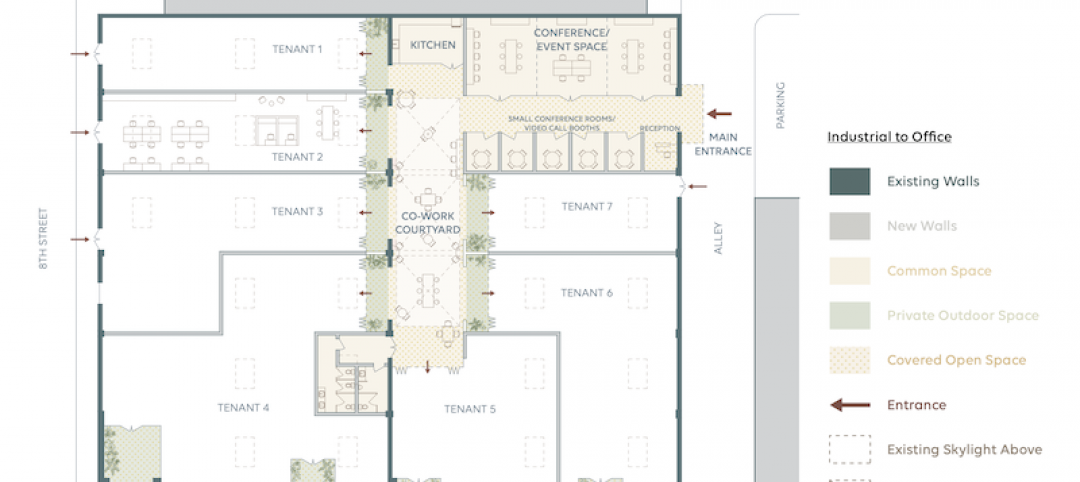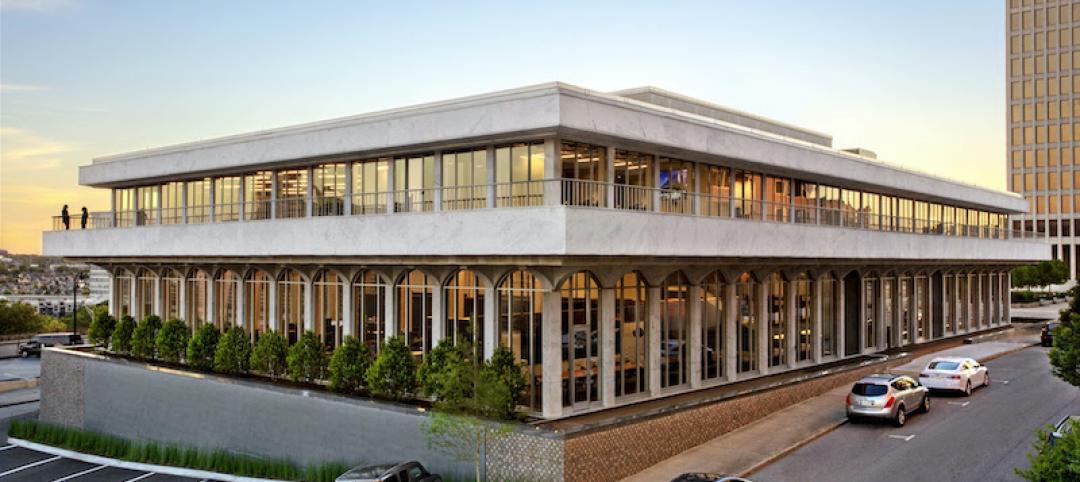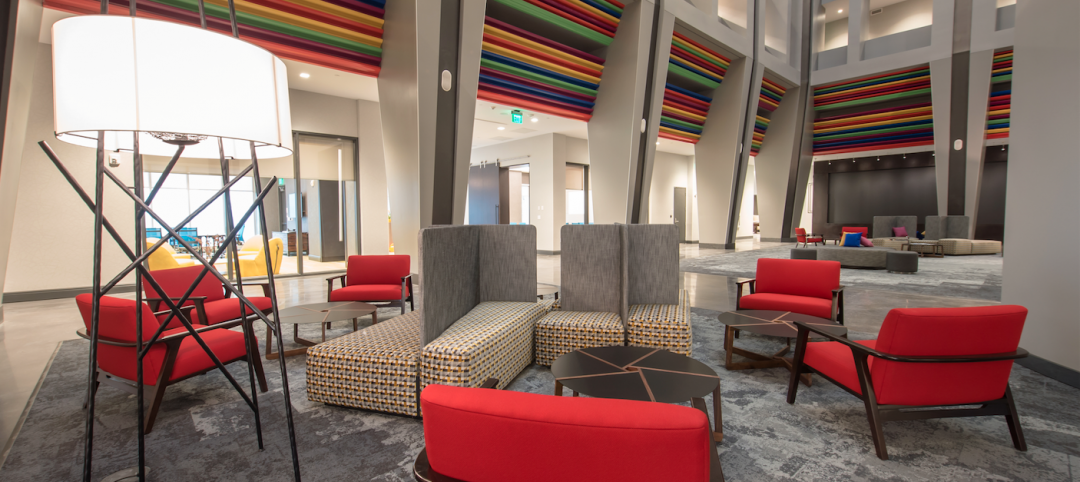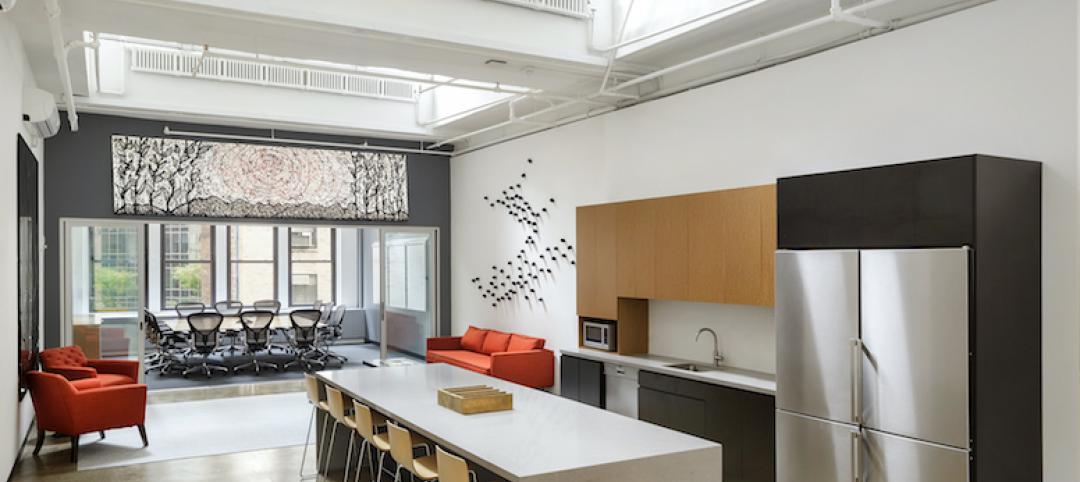A recently opened multifamily property in Lawrence, Mass., is an adaptive reuse of an 1840s-era mill building. Stone Mill Lofts is one of the first all-electric mixed-income multifamily properties in Massachusetts. The all-electric building meets ambitious modern energy codes and stringent National Park Service historic preservation guidelines.
The $39.2 million project transformed the oldest mill in Lawrence, a former industrial powerhouse, into 86 units of rental housing. An airtight, ultra-efficient building envelope includes the use of substantial insulation, high-performance historic replica windows, high-efficiency heat pumps, and energy recovery systems. The development’s fossil-fuel-free design is expected to use 46% less energy and result in greenhouse gas emissions reductions of an estimated 33% compared to a typical apartment building.
Fifty-eight apartments are intended for households earning up to 60% of Area Median Income (AMI), 11 apartments are for those earning up to 30% AMI, and 17 units will be leased at market rates. The 149,220 sf complex was constructed between 1845 and 1848, harnessing the Merrimack River to manufacture tools, mill machinery, water turbines, and millwork for textile factories.
The building team preserved the structure’s unique historic characteristics while installing four inches of insulation and high-performance, historic replica windows, making highly efficient electric building mechanical systems feasible. “We believe Stone Mill Lofts is one of the most significant projects to result from our longstanding partnership with WinnDevelopment because it sets a new standard for how historic preservation and adaptive reuse can address the affordable housing crisis and climate change at the same time,” said Scott Maenpaa, TAT project manager.
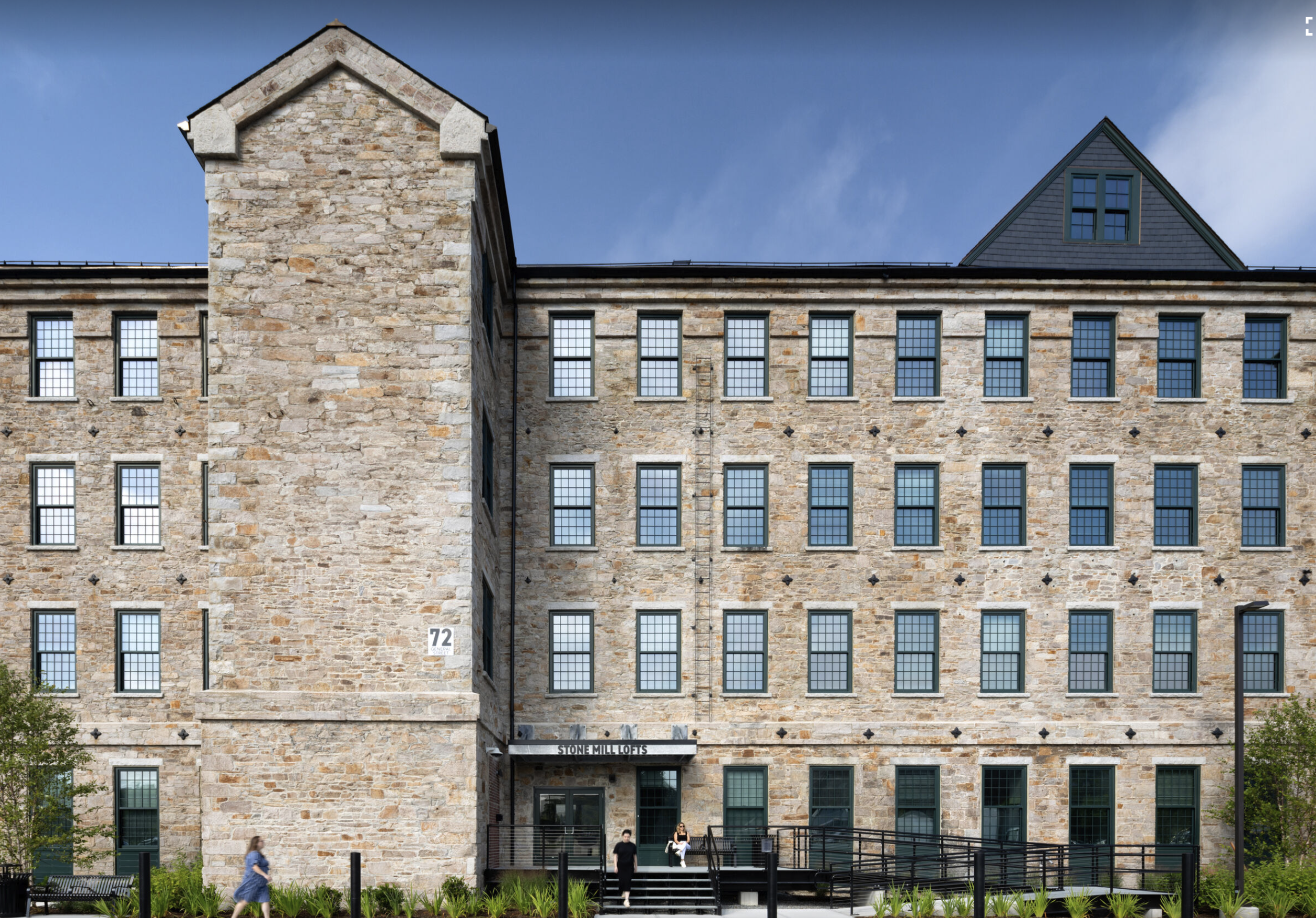
Stone Mill Lofts offers 50 one-bedroom apartments, 28 two-bedroom two-bath units, and eight three-bedroom two-bath units. Every apartment benefits from large window openings and the thoughtful integration of existing historic elements such as exposed, original wood beam ceilings.
On-site amenities include an expansive resident lounge and kitchen, billiards room, a fitness center with interactive equipment and a yoga nook, a children’s playroom, indoor and secure bicycle parking, resident storage lockers, work-from-home pods, secure package room, a historic mill exhibit room, nicely landscaped outdoor areas, and a patio. The 2.3-acre site is located within walking distance of a commuter rail line to Boston.
The Massachusetts Executive Office of Housing & Livable Communities contributed $3.1 million from the Affordable Housing Trust and Housing Stabilization Funds. The project also benefited from more than $38 million in Federal and State Low Income Housing Tax Credit equity and Federal and State Historic Tax Credit equity.
Owner and/or developer: WinnCompanies
Design architect: The Architectural Team, Inc. (TAT)
Architect of record: The Architectural Team, Inc. (TAT)
MEP engineer: R.W. Sullivan Engineering
Structural engineer: Odeh Engineers/WSP
General contractor/construction manager: Keith Construction, Inc.
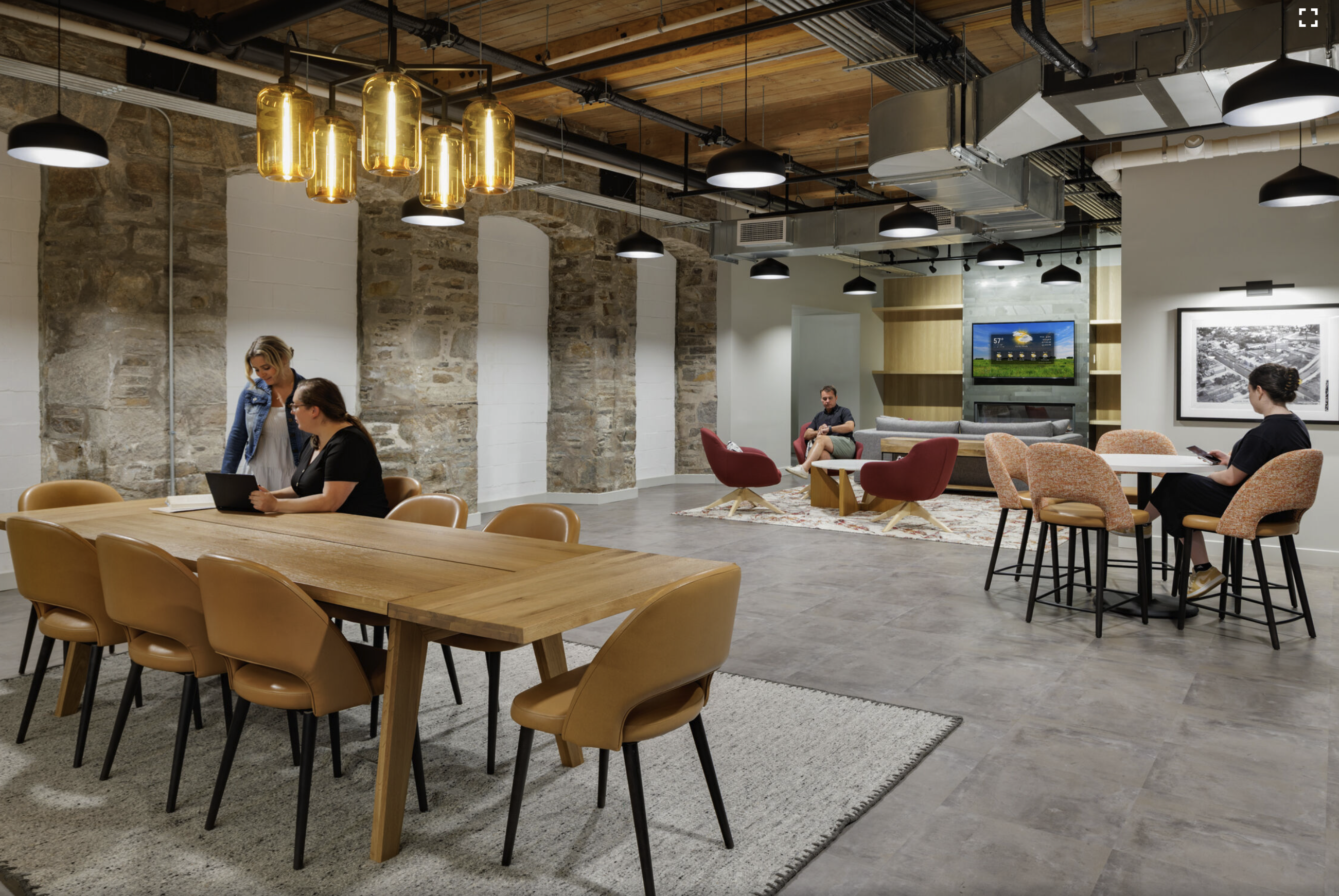
Related Stories
Adaptive Reuse | Oct 22, 2020
A Los Angeles design firm reimagines urban workplaces, multifamily buildings, and warehouses
Omgivning conjures varieties of adaptive-reuse concepts.
Adaptive Reuse | Jul 29, 2020
Two Indianapolis schools find new digs in a long-dormant factory
Adaptive reuse preserved many of the building’s original features.
Coronavirus | May 18, 2020
Will empty hotels provide an answer for affordable housing shortage?
A Los Angeles-based startup sees the Midwest as most fertile for adaptive reuse.
Adaptive Reuse | Feb 25, 2020
Hastings Architecture creates its new HQ from a former Nashville Public Library building
The building was originally constructed in 1965.
Mixed-Use | Jul 18, 2019
POST Houston mixed-use development will include a five-acre “skylawn”
OMA is designing the project.
Multifamily Housing | Jun 17, 2019
Boston multifamily development combines a historic warehouse with a new, modern addition
The Architectural Team designed the project.
Adaptive Reuse | Jun 11, 2019
The power and possibility of adaptive reuse
Building reuse generally offers greater environmental savings than demolition or new construction.
Adaptive Reuse | Jul 9, 2018
Work, park, live: Inside Cincinnati’s parking garage turned lifestyle hotel
The Summit hotel and conference center is a converted parking garage that was once a factory.
Office Buildings | Jun 6, 2018
Final Cut: Jupiter Entertainment’s new production studio in New York combines office and editing spaces
The project team completed this full-floor renovation in four months.
Adaptive Reuse | Jun 4, 2018
Pop-up retail market on Chicago’s Randolph Street will be made of repurposed shipping containers
Related Midwest will open the market at 725 W. Randolph St. later this week.



